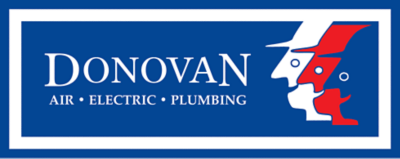When your air conditioner stops working, you need a Jacksonville AC Repair company that can quickly diagnose the problem and restore your system to peak efficiency. Whether the cause is the compressor, heat pump, ducts, evaporator coil or air handler, our certified technicians are expertly trained to deliver fast, reliable solutions. In addition, we offer maintenance agreements with bi-annual system inspections to help you stay comfortable year-round while avoiding an unexpected system failure. Call Donovan Air, Electric & Plumbing at (904) 241-3785 to schedule an appointment.
Service Areas for Jacksonville’s Downtown
As you may know, Jacksonville is the largest city in the U.S. with a defined city limit that incorporates most of Duval County, FL. There are more than 500 neighborhoods located in numerous communities (or districts) within the consolidated land area. The exceptions are four municipalities that are also located within the county, which include Jacksonville Beach, Atlantic Beach, Neptune Beach and Baldwin. Since the Territorial Legislature was enacted in 1822, the downtown core, or Northbank, has always been the traditional city center of Jacksonville.
Today, local residents needing AC repair in Jacksonville rely on Donovan Air, Electric & Plumbing for emergency services, installation of replacement units, duct cleaning, whole house testing and “Preferred Customer” maintenance programs. Our service area includes but is not limited to those living in the following districts of Downtown Jacksonville:
- Avondale
- Brooklyn
- LaVilla
- Murray Hill
- New Town
- Ortega
- Riverside
- San Marco
- Springfield
- St. Nicholas
Frequently Asked Questions
Is Donovan Air, Electric & Plumbing insured and licensed for Jacksonville AC repair?
Yes. We are a fully licensed and insured heating & conditioning, electrical and plumbing company serving Jacksonville, Florida and the surrounding areas.
What does N.A.T.E. certified mean?
The nation’s largest non-profit certification organization for air conditioning, heating and ventilation is North American Technician Excellence or N.A.T.E. The certification of HVAC technicians is supported by the industry and N.A.T.E. certification is considered the “Gold Standard”.
How often should I have my AC serviced?
Our membership plans provide two (2) HVAC service calls per year. This mirrors the recommended service schedule of the Environmental Protection Agency’s Energy Star program, which promotes energy efficiency nationwide. For your part, the EPA recommends you change your air handler’s AC filter once a month. If you don’t know how, our technician will gladly show you how to perform this important task. We are ready to help if you need an AC system tune-up.
What does an air handler do?
Air conditioners and heat pumps remove heat and moisture from the air. Warm indoor air passes over a coil that is cooled by the refrigerant inside. As the outdoor compressor transfers the heat and moisture to the outside, the air handler removes dust and pollutants via an AC filter and circulate the cool air for improved air quality and comfort.
How long should my AC system last?
The average lifespan of most central air conditioning systems is approximately 10 years. Since newer systems are more energy efficient, replacing an older unit can offer a substantial return on investment (ROI). For an accurate HVAC assessment, Donovan can perform a “residential load calculation” that takes into account dozens of variables like your location, size of house, number of occupants and comfort preferences.
Should I repair or replace my existing AC?
There is no one-size-fits-all answer to that question. You know from the previous question that a 10-year old system is less energy efficient; so are you interested in lowering your utility bill. If so, it may be time for a new installation. Other considerations would be whether your system requires more frequent service calls and AC repairs, or has the unit become noisier due to internal wear and tear.
What is a SEER rating?
A SEER (seasonal energy efficiency ratio) is a calculation that determines the amount of cooling your AC will provide based on each dollar spent for electricity. For example, a new unit with a 13 SEER (the new standard) represents a 30% increase in energy efficiency compared to a 10 SEER (the old standard) central air conditioner or heat pump.
Can I save money by closing the vents in rooms that I don’t use?
In a properly designed system, the blower moves air against a pressure that was specified by the manufacturer. When unused vents are closed off, pressure inside the ducts increases causing air leaks in unsealed ductwork. The change in pressure also causes the unit’s blower to react differently and the restrictions may lower airflow, which can lead to ice forming on the system’s coil. A reputable AC company can provide the best solutions for saving money.

Donovan 360 Memberships
Your family’s home comfort is important. And we aim to protect it and give you peace of mind.


